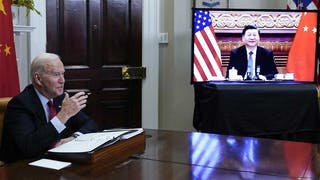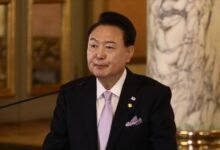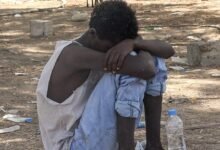international
U.S. withdrawal may halt nuclear nonproliferation work in Iran: diplomats
[su_label type=”info”]SMA News – Agencies [/su_label][su_spacer size=”10″] The remaining parties to the Iran nuclear deal have warned the United States that its decision to withdraw from the pact jeopardizes Russian and Chinese efforts to limit Iran’s ability to develop atomic weapons, Western diplomats told Reuters. In pulling out of the 2015 deal, U.S. President Donald Trump triggered the revival of sanctions against the Atomic Energy Organization of Iran (AEOI), which oversees the Arak heavy water research reactor and the Fordow fuel enrichment plant.
Under the deal, the Arak reactor was to be redesigned to render it unable to make bomb-grade plutonium under normal operation, while the Fordow plant was to stop enriching uranium and be converted into a nuclear, physics and technology center. The restoration of U.S. sanctions on AEOI would expose non-U.S. companies to the risk of punishment by the United States for dealing with it, including Chinese state-owned China National Nuclear Corp. and Russia’s Rosatom, which are doing nonproliferation work respectively at Arak and Fordow. Neither company responded to requests for comment.
At a meeting in Vienna last Friday, the non-U.S. parties to the deal – Britain, China, France, Germany, Russia and Iran – discussed the subject extensively, with Beijing and Moscow stressing their concerns, three European diplomats said. One senior European diplomat called the situation “crazy” and said the U.S. withdrawal risked triggering a proliferation problem because its sanctions may halt work on Arak and Fordow.
“It may force the interruption of the dismantling of Iran’s nuclear sites. It’s completely absurd,” the diplomat said. Iranian officials were not immediately available for comment. Asked how Washington planned to address the concerns about AEOI being sanctioned and how it would serve U.S. interests not to carry out the nonproliferation work at Arak and Fordow, Assistant Secretary of State Christopher Ford said the U.S. was aware of the other parties’ positions regarding AEOI.
“These questions are all under active consideration by the U.S. government,” he said in a statement relayed by a spokeswoman. “Our posture towards Iran will be geared towards obtaining enduring nonproliferation benefits and constraining the full range of its malign activities.”
Under the deal, the Arak reactor was to be redesigned to render it unable to make bomb-grade plutonium under normal operation, while the Fordow plant was to stop enriching uranium and be converted into a nuclear, physics and technology center. The restoration of U.S. sanctions on AEOI would expose non-U.S. companies to the risk of punishment by the United States for dealing with it, including Chinese state-owned China National Nuclear Corp. and Russia’s Rosatom, which are doing nonproliferation work respectively at Arak and Fordow. Neither company responded to requests for comment.
At a meeting in Vienna last Friday, the non-U.S. parties to the deal – Britain, China, France, Germany, Russia and Iran – discussed the subject extensively, with Beijing and Moscow stressing their concerns, three European diplomats said. One senior European diplomat called the situation “crazy” and said the U.S. withdrawal risked triggering a proliferation problem because its sanctions may halt work on Arak and Fordow.
“It may force the interruption of the dismantling of Iran’s nuclear sites. It’s completely absurd,” the diplomat said. Iranian officials were not immediately available for comment. Asked how Washington planned to address the concerns about AEOI being sanctioned and how it would serve U.S. interests not to carry out the nonproliferation work at Arak and Fordow, Assistant Secretary of State Christopher Ford said the U.S. was aware of the other parties’ positions regarding AEOI.
“These questions are all under active consideration by the U.S. government,” he said in a statement relayed by a spokeswoman. “Our posture towards Iran will be geared towards obtaining enduring nonproliferation benefits and constraining the full range of its malign activities.”








